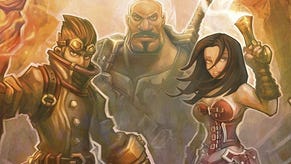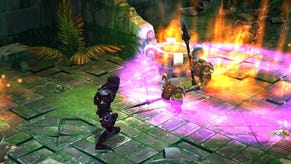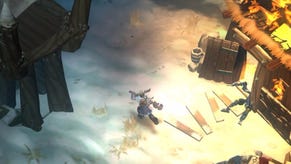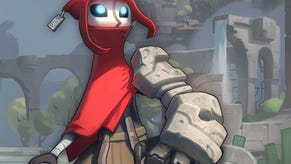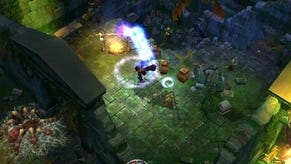Torchlight
It's all in the mine.
Thanks to a muddy blend of toxic cynicism and globally-ranked ignorance, I'm rarely too starstruck by the people I end up interviewing. Yet, at this year's PAX, I was embarrassingly excited about meeting Max Schaefer, headof Runic Games, the developer of forthcoming Diabloesque dungeon-crawler Torchlight. Long before that, he was a key contributor to another deeply Diabloesque dungeon-crawler - called Diablo. Schaefer's put some serious numbers on the board, in other words, yet he hasn't retreated into luxurious obscurity to live off his millions, and he hasn't grown snippy following the closure of Flagship, the company he co-founded after leaving Blizzard.
Flagship suffered a rather public meltdown following the wonky release of Hellgate: London, and one of the messier footnotes to the sorry affair was the fact that Mythos, the company's second game, ended up in the hands of South Korean outfit HanbitSoft, while Schaefer and his team found themselves shut out. "When Flagship blew up spectacularly, the 14 of us who had been working on Mythos decided that we wanted to stick together," says Schaefer, smiling broadly. "We were such a tight group and had such a good time doing this, we just had to resurrect that team from the ashes somehow."
Mythos itself was a bit of an odd one. Initially built to test networking technology for Hellgate, it was a return to the top-down dungeons Schaefer knew so well, and a title that people generally agreed was looking a lot more appealing than Flagship's actual flagship. We may never know exactly how much more appealing, however, as HanbitSoft has since announced it's significantly reworking the original game in-house. "That Korean company that stole Mythos? Good luck to them," says Schaefer so breezily that you could almost believe he means it. "The tech it's built on was incredibly difficult to build stuff with, so they have their work cut out for them."
With Mythos behind him, the boss of Runic seems distinctly chirpy as he shows us around Torchlight, an oasis of colourful mystery on a show floor dominated by the omnipresent chunter of chain-gun fire (hopefully only virtual), and the explosive thud of dozens of T-shirt cannons hoping to power passers-by, XXL-style, to that convention centre in the sky. Schaefer's probably right to be enthused. The spiritual continuation, perhaps, of the game his team never got to finish at Flagship, Torchlight is shaping up to be a genuine delight: a modest loot hack that's been race-tuned for charm, convenience, and low-spec PCs. All virtues worth pursuing, if you ask me.
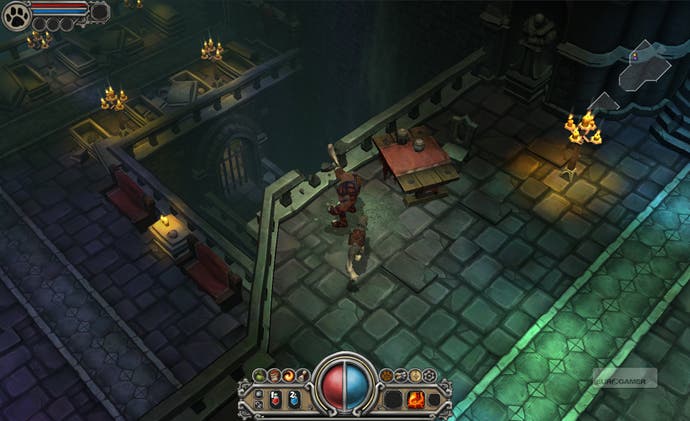
There's the depth here that you might expect - the inventory and character pages are bafflingly, temptingly vast - but it's a game that's been designed to fit in around your life, too. "One of the focuses for the game has been to be really respectful of people's time," says Travis Baldree, Torchlight's lead designer. "I've got a four-year-old, and I don't have time for all the usual nonsense. So when you save, Torchlight saves exactly where you stand, and on top of that, we give players a pet, which will level with you and has its own inventory. That means you can get it to go back to town and sell items for you while you stay in the dungeons. We've tried to remove all the obstructions that could make a game annoying. I want to make a game I can just sit down and play."
Make that two games, actually. While the Torchlight that Runic's currently putting the finishing touches to is a no-nonsense single-player experience, it's also the calling card for an MMO, which the developer plans to kick off production on immediately after the first game is safely out the door.
Let's start with the single-player game. Torchlight is a ramshackle mining town, where prospectors have hit a mother-lode of the magical resource Ember. As unlikely characters flood in from everywhere, hoping to make their fortunes with picks and shovels or steal them at gunpoint, events take an unusual turn. A discovery is made beneath Torchlight's mines when the ruins of a handful of ancient cultures who had stumbled across this particular seam of Ember in the past are unearthed. All appear to have died out while trying to harvest it. "It's a windfall, but there's something wrong with the set-up," says Schaefer. "There's something corrupting down there that likes to finish off civilisations, and the player has to uncover the truth."
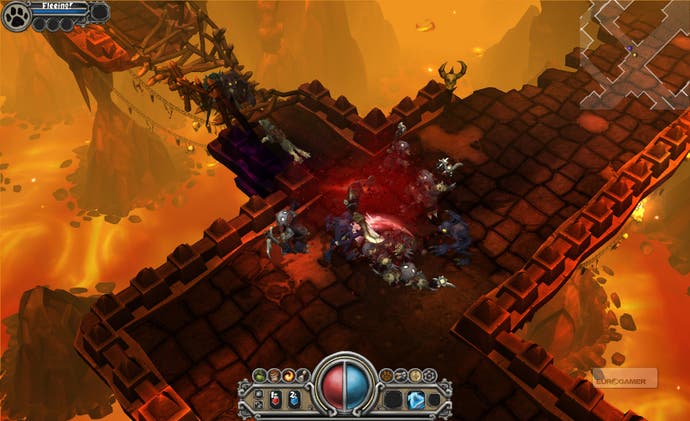
What this translates to is a joyously traditional dungeon-crawler with plentiful quests, stripped-back point-and-click controls that will be second nature to fans of the genre, and three basic classes (Destroyer, Alchemist and Vanquisher - loosely translating to a melee brawler, spellcaster and weapons user, expert in both ranged and close-quarters attacks). Classes direct the way you approach the game, but they don't limit your playing style as much as you might expect. "We don't have class-specific items, so if you find a bow, for example, you'll be able to use it whoever you are," says Baldree. "That said, the right class using the right item will have special perks."
While the town of Torchlight is a fixed hub where you can interact with NPCs and purchase new equipment, the mines beneath it are procedurally generated. "It's kind of the structure of Diablo 1, where there's this one location, and then we have lots of dungeons spreading off from that," says Schaefer. "We've been doing a lot of work on the randomisation stuff. A lot of us worked on the Diablo series prior to Hellgate, so we've done it every which way for the last twelve years.


